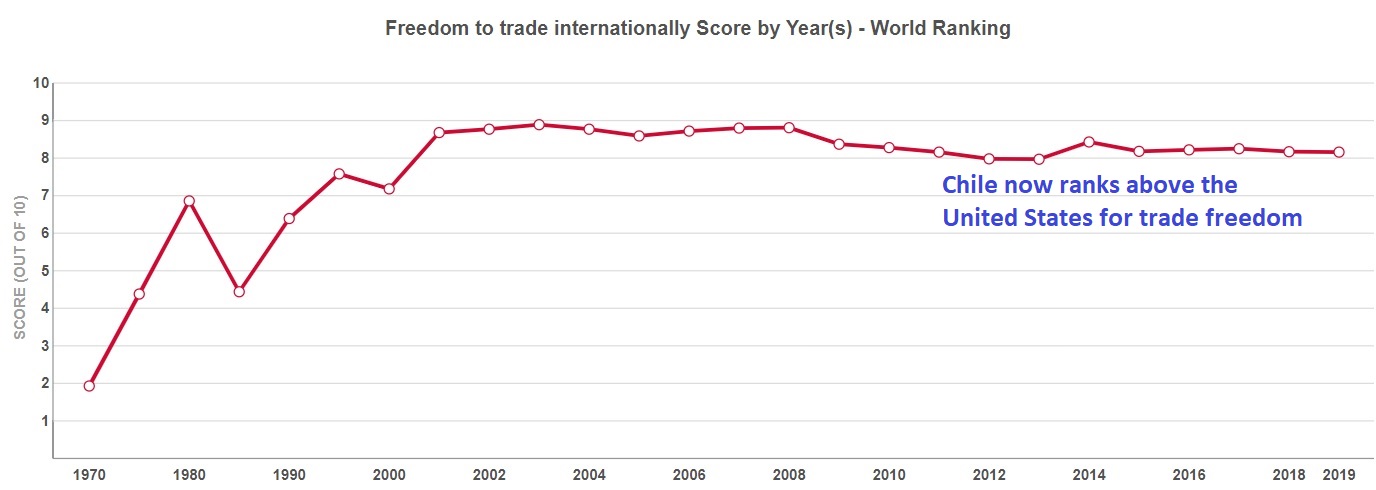Greetings from Santiago. Chileans vote today for a new president and there’s a risk that a Venezuelan-style leftist, Gabriel Boric, will prevail.
And that puts at risk the economic progress described in this video.
The video has a good discussion of Chile’s very successful system of private pensions (which will be in danger if Boric wins).
But it also points out how free trade helped create the prosperity of modern Chile.
And that narrative is confirmed by looking at Chile’s score from the Fraser Institute’s Economic Freedom of the World.

I’m always happy to sing the praises of free trade and condemn protectionism, but let’s keep the focus on today’s election in Chile and why it matters.
That’s why this tweet tells you everything you need to know.
Notice how Chile began to prosper after it began to shift to free markets around 1980 and notice how Venezuela began to fall after it shifted to statism starting around 2000.
Chile and Venezuela. Two countries with very different economic trajectories in recent decades. This animation shows per capita income from 1970 to 2017. Source: https://t.co/XzW3Xhtig4 pic.twitter.com/EWGhMIAMKB
— Simon Kuestenmacher (@simongerman600) February 26, 2020
Notwithstanding all this evidence, Boric is favored to win today’s election. Which would be a vote for national economic suicide – perhaps akin to the British people voting for the pro-nationalization Labour Party after World War II (described in this video, for those interested).
I hope I’m wrong, both about the results of the election and the potential changes to economic policy if Boric prevails.
P.S. If you’ve enjoyed my Chilean election coverage, I did the same thing a couple of years ago in the United Kingdom (see here, here, here, here, and here).
———
Image credit: AKrebs60 | Pixabay License.
